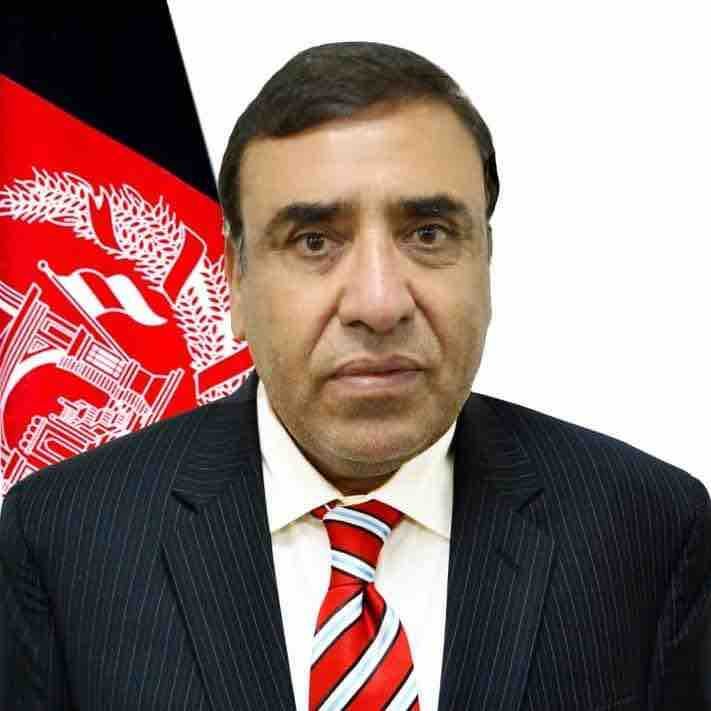Do the Taliban Have an Alternative?

By Shahmahmood Miakhel
Some people, whether consciously or unconsciously, believe that the Taliban have no alternative and that their rule is a reality that must be accepted.
We will analyze and examine these two issues of “alternative” and “accepting reality” to determine their validity.
If the discussion is about accepting realities, then the monarchy of King Zahir Shah was also a reality. Why did President Daoud stage a coup? President Daoud’s republic was also a reality, so why did the PDPA (People’s Democratic Party of Afghanistan) stage a coup?
The PDPA government was also a reality, so why did the Mujahideen fight against it? The Mujahideen were also a reality, so why did the Taliban fight against them? The republic was also a reality, so why did the Taliban carry out suicide bombings and explosions against the republic and its people?
This second round of Taliban rule is also a reality, so why do millions of Afghans hate them and flee the country? The devil is also a reality, so why do mullahs preach against him every day?
The issue here is not about accepting or rejecting realities. The issue is that the struggle, war, or whatever name you give it against all these realities was because a group or a person came to power. These individuals and groups created policies of exclusion and monopolization of power. To seize power, they would inevitably create narratives, garner support from their own and outsiders, create fear and hatred, justify unjust actions, and consider just actions unjust. They create a vicious cycle to maintain power, enforcing the law of the jungle.
In the jungle, the lion is also a reality, but other animals either flee from it or fight against it. In the jungle, the strong prey on the weak, and when the jungle’s lion weakens, another strong one emerges to replace or eliminate the previous one. This new lion rules until another stronger one emerges and replaces it.
The situation in Afghanistan over the past centuries, especially in the past five decades, has been like this. The main issue is whether Afghans accept the law of the jungle or live together under a legal framework.
If the issue is about accepting realities, then the Taliban should also accept and consider the brief history of the past five decades, because that too is a reality. The Taliban themselves have experienced this bitter reality.
Why were they removed from power, and what happened to them over the past two or three decades? Let’s move away from the law of the jungle. Let all Afghans live, work, and engage in politics within a legal framework.
The politics of exclusion and monopolization of power should end. Afghans should learn from bitter past experiences that the law of the jungle cannot continue and that another predatory lion will inevitably emerge to prey on its own people and eliminate the previous lion.
The second issue is the question of “alternatives”. This too is a foreign narrative that has been whispered into the ears of Afghans in various ways for years. In this narrative, based on the law of the jungle, the qualities of a predatory animal are described, such as someone being a great commander, a brave warrior who killed many, and that there is no one like him. It is said that another son will not be born to take his place. A few days ago, I wrote in an article that Afghans have been bitten multiple times from the same hole, but they still haven’t learned.
Here, some Afghans, out of fear, the pursuit of wealth, power, and positions, praise living predatory animals. They write poems, articles, and make propaganda in their praise. They speak on television and radio about past eras. Some foreigners and domestic actors lobby for the Taliban.
Some of these realities are true, while some are their slanders and lies. These poems, writings, and praises are repeated in gatherings and places to create a false and fictional narrative of bravery and to accept the current reality. Such praises, heroic poems, and songs are characteristics of backward and primitive societies. In such societies, heroic songs and poems are popular.
If we look at Afghan history, the most praised individuals in all tribes are those who destroyed the country the most and killed many people. There is little mention of those who contributed to the country’s reconstruction.
In civilized and advanced societies, the issue of alternatives is also raised, but there the alternative is created within the framework of the law. It depends on the people whether they create a good alternative or a bad one. If they create a good alternative, the system works well; if they create a bad alternative, the system works poorly.
Among Afghans, raising the issue of alternatives is fundamentally wrong. No one can be an alternative to anyone. We heard the issue of alternatives during the time of King Zahir Shah, during President Daoud’s time, during the time of Taraki, Amin, Babrak Karmal, and Dr. Najib. We heard about alternatives during President Karzai’s time, and we heard the same issue during Dr. Ashraf Ghani’s time: that they have no alternatives. We also heard about alternatives during Mullah Omar’s time, and even after his death, it was said that he had no alternative, but an alternative was found for each one in its time. An alternative will definitely be found for the Taliban and Sheikh Hibatullah (if he is the same Sheikh Hibatullah from Kuchlak).
The phrase “no alternative” is fundamentally an insult to forty million Afghans, implying that among forty million Afghans, there is not a single person who can be an alternative to someone else. The main question is whether their alternative should be created based on the law of the jungle, where another predator emerges and eliminates them, or should all live, work, and engage in politics under the shadow of the law and create an alternative within the framework of the law? Discussing individuals and alternatives is fundamentally wrong because Afghanistan’s history has proven that, under the law of the jungle, no one is a good alternative to another.
The right thing is to discuss systems and laws instead of individuals, to move away from the law of the jungle so that processes, systems, and laws can create alternatives. After having laws, it depends on the people what kind of alternatives they choose. Under the framework of the law, there should be no politics of exclusion and monopolization of power. Power always goes to the group that is organized. If the Taliban are organized, they will take power with the people’s consent because the people will want such individuals, and if others are organized, they will take power and everyone will have the right to live, work, and engage in politics within the framework of the law.
For this reason, the Pro-Democratic Republic Movement of Afghanistan (PDMA)
(د افغانستان د جمهوري غوښتونکو خوځښت/حرکت حمهوري خواهان افغانستان) opposes all kinds of power sharing and inclusive government but supports inclusive processes within the framework of the constitution. In an inclusive government, a few people are prominent, and a few people occupy the nation’s share. In an inclusive process, the nation is prominent, not individuals. The result of an inclusive process within the framework of the constitution can bring stability, protect the rights of all Afghans, prevent war and conflict, improve governance, and ultimately allow Afghans to breathe peacefully.
*Shahmahmood Miakhel served as Governor of Nangarhar Province of Afghanistan (2019-2021), Deputy Minister of Interior in-charge for local governance (2003-20025), First Deputy and Acting Minister of Defense of Afghanistan (July 2020-March 2021). He worked as Country Director of Afghanistan for the United States Institute of Peace (2009-2019), worked as Head/Deputy Head of the Governance department of the United Nations Mission for Afghanistan (UNAMA) and also worked for different NGOs, UNOPS and local reporter for the Voice of America Pashto/Dari services in Peshawar.
Note: The contents of the article are of sole responsibility of the author. Afghan Diaspora Network will not be responsible for any inaccurate or incorrect statement in the article.






